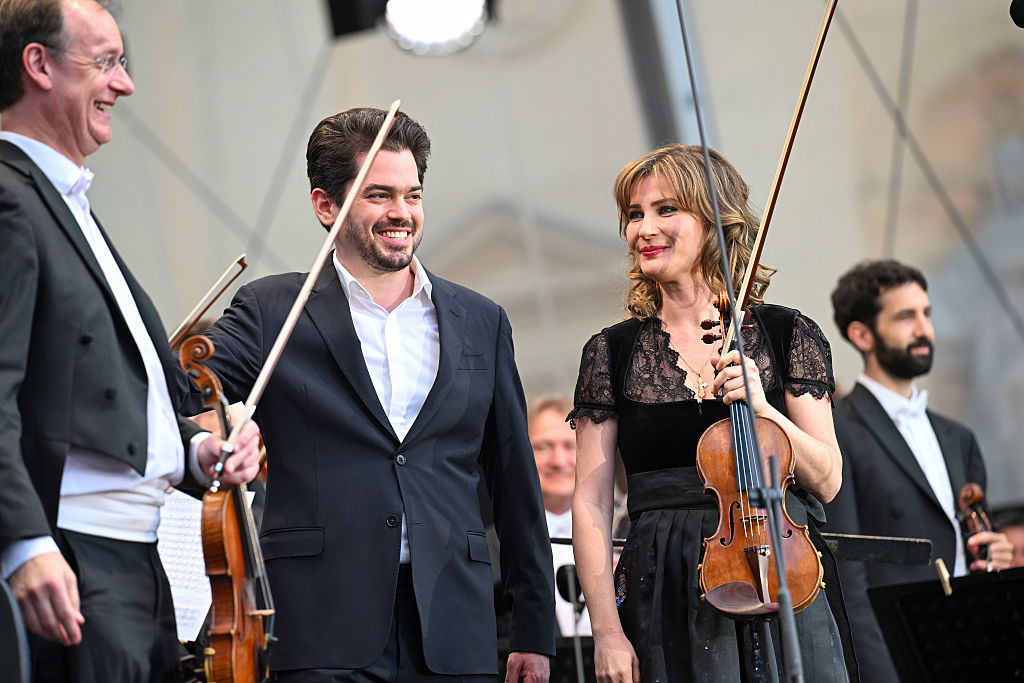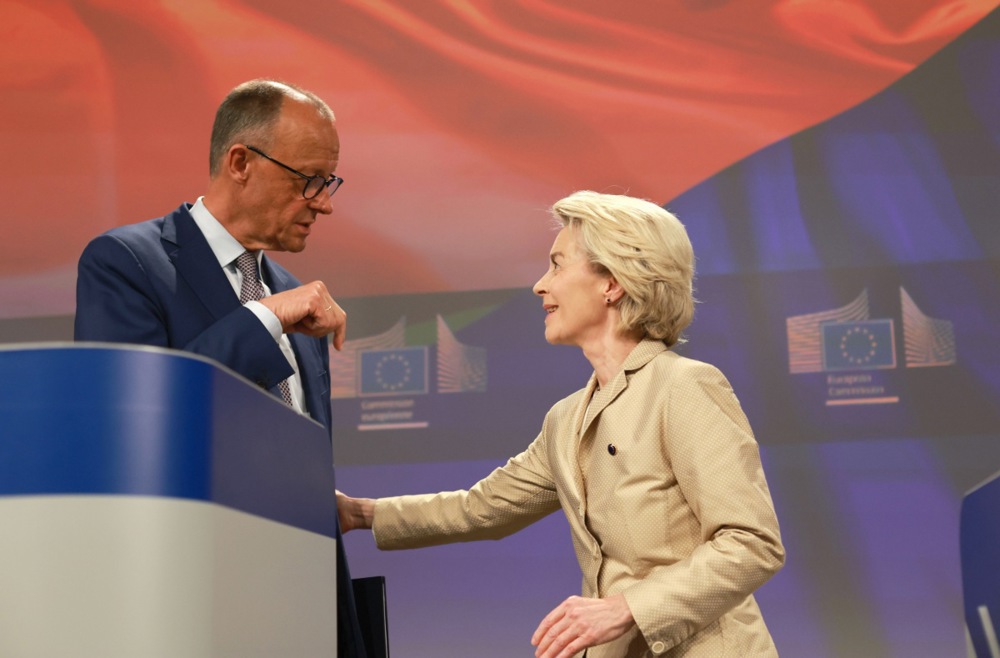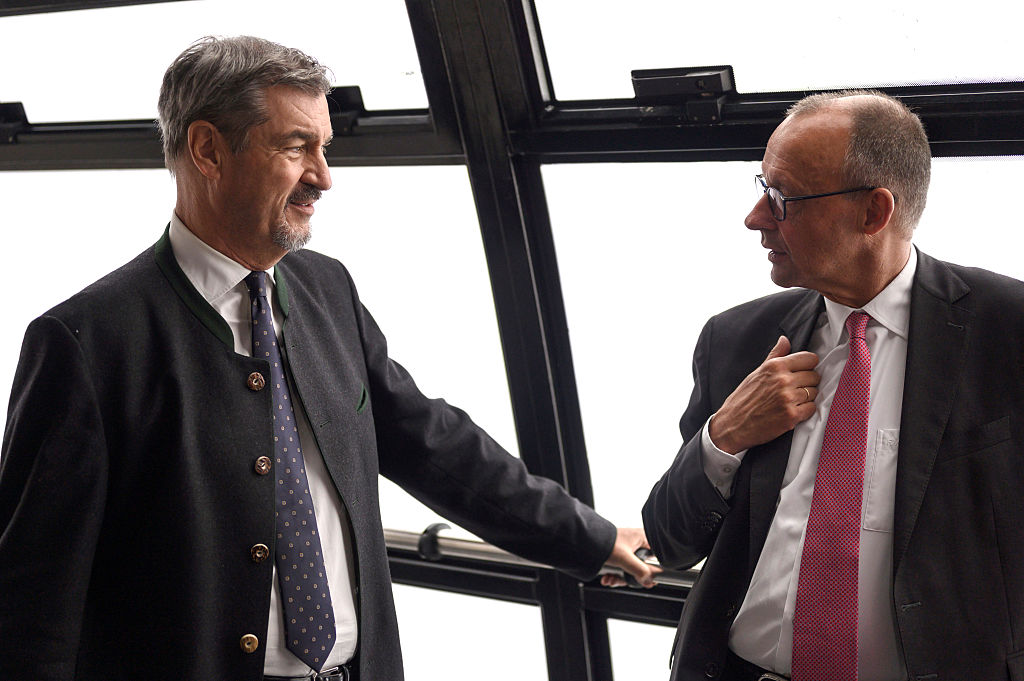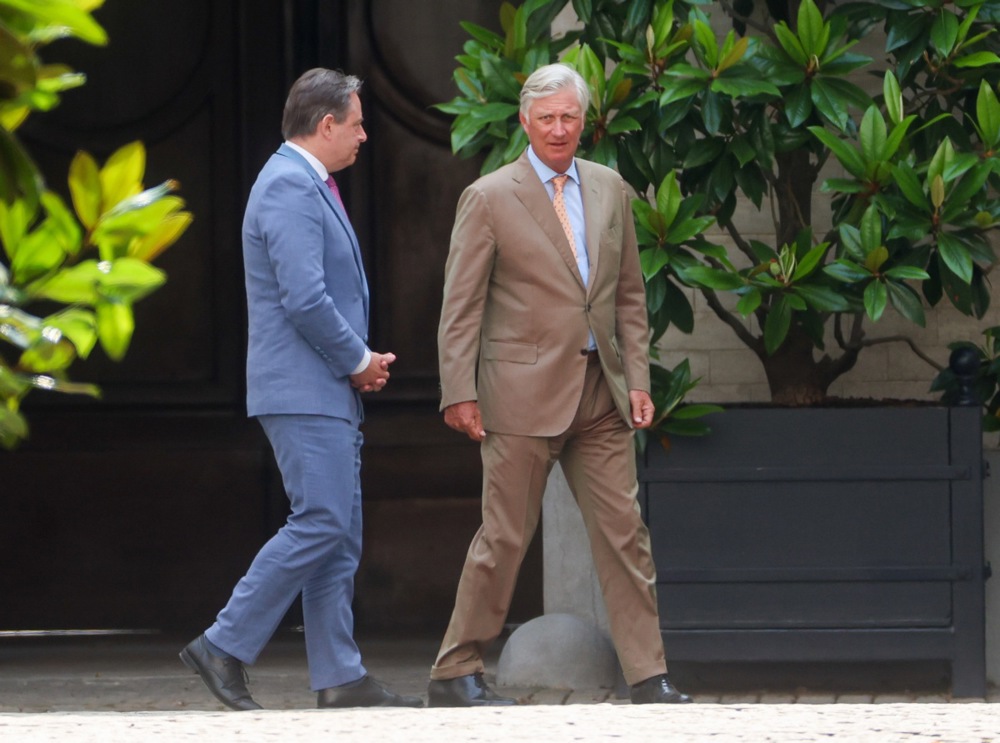A decision by the Flanders Festival Ghent to cancel a concert by the Munich Philharmonic Orchestra over its incoming Israeli conductor, Lahav Shani, has ignited an international controversy.
Amid accusations of anti-Semitism and diplomatic efforts to contain the fallout, the row has exposed deep divisions in Belgium’s political spheres.
On September 10, the festival announced it was scrapping a planned performance at St Bavo’s Cathedral over concerns about Shani, the 36-year-old Tel Aviv-born maestro set to lead the Munich Philharmonic as chief conductor from 2026.
Citing Shani’s role as music director of the Israel Philharmonic Orchestra, festival director Jan Van den Bossche claimed there was “insufficient clarity” on Shani’s stance regarding Israel’s actions in Gaza.
The Ghent Festival of Flanders also said it believed he “did not provide sufficient clarity about his stance towards the genocidal regime”, despite prior public statements Shani made on the need for peace and co-operation between Israel and Palestine.
The festival organisers framed the move as a commitment to “connection and reconciliation”, aligning with Ghent’s city council and Flemish cultural groups calling for boycotts of artists linked to the Israeli Government.
Jan Briers, president of the Flanders Festival Ghent said he feared it would be disrupted in ways similar to events in Spain, where the cycling competition the Vuelta was faced with violent demonstrators. Briers reportedly offered his resignation but it was refused.
Critics slammed the decision to ban Shani, arguing that forcing someone to speak out on things violated freedom of conscience and set a double standard.
They pointed out that no one demanded Chinese or Russian professionals to justify their political views to work in Belgium and questioned, therefore, why Israelis be singled out.
In Germany, the decision triggered swift condemnation. The Munich Philharmonic labelled it “collective punishment” of Israeli artists, while Munich Mayor Dieter Reiter called it an attack on “European and democratic values”.
A petition by musicians, including harpsichordist Mahan Esfahani, garnered over 11,000 signatures, denouncing the move as “morally bankrupt” for targeting Shani’s nationality.
The German embassy in Brussels cut ties with the festival and Israel’s ambassador to Germany, Ron Prosor, called it a “modern form of anti-Jewish hatred”.
The Berlin Philharmonic invited Shani to perform with it as a gesture of solidarity amid the ongoing storm.
Yesterday he did so, with many prominent people attending at the packed venue, including ex-German chancellor Olaf Scholz.
Shani received a standing ovation at the end of the performance.
Wunderschöner Konzertabend! Nach der Ausladung der @Munich_Phil in Gent wurde kurzfristig ein Auftritt in #Berlin organisiert. Volles Konzerthaus und Standing Ovations für Lahav Shani & Orchester. Und klare Worte von Kulturstaatsminister Weimer @BundesKultur gegen #Antisemitismus pic.twitter.com/RdYX2bFdEP
— Jörg Gehrke (@JoergMGehrke) September 15, 2025
German Minister of State for Culture Wolfram Weimer said: “While elsewhere Jewish artists and a top German orchestra are being disinvited, Berlin is sending a strong counter-signal today.”
After a meeting with Shani, German President Frank-Walter Steinmeier said there was no justification for what happened to Shani. “This is clearly anti-Semitic,” he stated.
The President serves as the country’s head of state but the role is largely ceremonial, performing symbolic and diplomatic duties. Slamming countries over anti-Semitism is a rare activity in his case.
Belgian Prime Minister Bart De Wever, leader of the Flemish nationalist N-VA party, entered the fray on September 12, trying to salvage the international image of Belgium.
He slammed the decision as “reckless” and a blow to artistic freedom. In a bid to quell the crisis, De Wever attended a Munich Philharmonic concert led by Shani in Essen, Germany, on September 13, posting on Instagram: “There will never be room for racism or anti-Semitism in this country.”
De Wever said he assumed the festival did not have bad intentions but that things had taken a turn for the worse and that the reputation of Belgium was severely damaged.
“A line that should never be crossed has been crossed,” he said. “This won’t just blow over.”
German Chancellor Friedrich Merz praised De Wever’s support for Shani on September 14 as a “strong sign” against anti-Semitism.
Yesterday, Merz posted that there was a new wave of anti-Semitism in his country, adding: “This federal government and I declare war on this anti-Semitism. We will not tolerate it – not even under the guise of the supposed freedom of art, culture and science.”
During a speech on the remembrance of the Shoah, speaking about growing anti-Semitism, Merz was visibly upset, on the verge of tears.
Exactly 90 years ago on September 15, the National Socialists had enacted the Nuremberg Laws in Germany, the notorious racist laws that explicitly targeted Jews, making the controversy extra sensitive.
Just attended a wonderful performance in Essen by the Münchner Philharmoniker conducted by Lahav Shani.
Immediately after the horrific terrorist attack by Hamas, I expressed my fear that the Israeli government would allow itself to be drawn into an endless violent conflict in… pic.twitter.com/UqbAvJtzaV
— Bart De Wever (@Bart_DeWever) September 13, 2025
The European Commission expressed “deep concern” on September 12, noting that banning artists based on nationality violates European Union values.
De Wever repeated that the decision by the festival was anti-Semitic and urged the organisers to at least give a positive signal.
He stressed that German politicians and media were fiercely outspoken about the issue, which he said underscored the gravity of the situation. De Wever noted that no other organisation in Europe supported the move.
French media also condemned the decision by the festival. Guillaume Tabard, a leading journalist in France, said it was “absolutely deplorable” and “worrying”.
Two members of De Wever’s centre-right N-VA party announced today they would leave the board of directors of the festival, saying the cancellation was discriminatory in nature and that they could not support racism.
But many noted that they did not appear to have made much noise when the initial decision was made.
While De Wever was trying to convince the Germans, who are the most important trading partners of Belgium, that his nation was not turning anti-Semitic, Socialists in Flanders stuck a different tone.
Flemish Culture Minister Caroline Gennez of the Socialist Vooruit Party backed the festival after she had earlier called for a “cultural boycott” of Israel and “to cease working with partners and companies that refuse to unequivocally distance themselves from the genocidal regime”.
This led to the European Jewish Association demanding her sacking, accusing her of “emboldening anti-Semitic currents”.
She ignored the call and said she hoped the political focus could shift to the budget talks. “For me, the incident is closed,” she said.
Vooruit leader Conner Rousseau urged the public to “move on”, framing the cancellation as a stand against complicity in Gaza’s suffering. He accused De Wever of “stirring up” emotions.
“I don’t know that man. Nor do most other people. I don’t care,” the Socialist leader said of Shani.
Christian Democrat President Sammy Mahdi accused De Wever of “gesture politics”.
Recently, the Christian Democrats and Socialists threatened to topple the Belgian Government over the war in Gaza and recognition of the Palestinian State.
Right-wing opposition parties noted that left-wing parties took offence with an Israeli conductor performing in Belgium but had no issue with rap duo Bob Vylan, who has made many controversial remarks, including calls to kill IDF soldiers on several occasions.
Yesterday, the festival confirmed the cancellation would stand, with ticket refunds issued and the programme otherwise continuing until October 2.
Despite the support by the German establishment, there was also a large police presence in Berlin, fearing anti-Israel/Pro-Palestinian protests.





